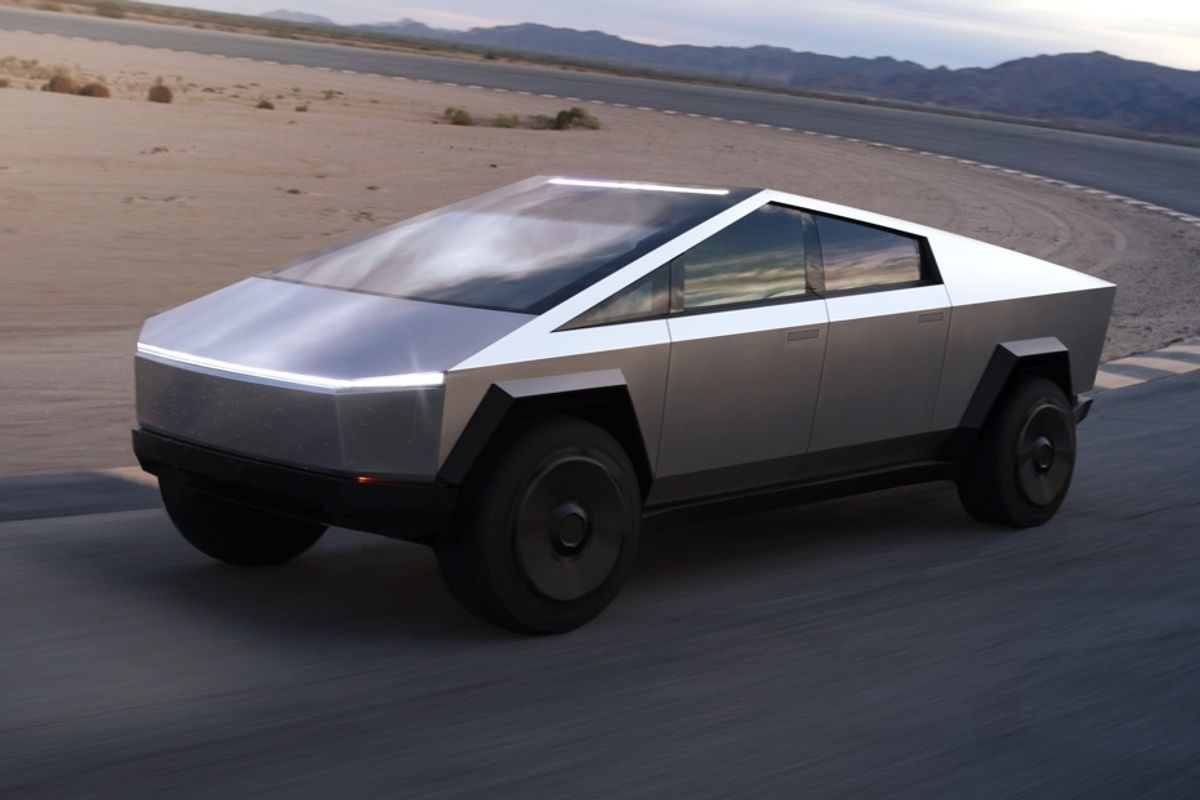Electric Cars

Tesla
Musk claims 200,000 Tesla Cybertruck pre-orders - but what will change before production begins?
The usual Tesla hype machine is in full swing, but this time the refundable deposits are just $100

The usual Tesla hype machine is in full swing, but this time the refundable deposits are just $100
Three days after Tesla's haphazard unveiling of its Cybertruck, company boss Elon Musk claims over 200,000 vehicles have been pre-ordered, despite production not likely to begin for at least two years.
Although that is, of course, a large number, and amounts to more than half of the pre-orders the Model 3 received in around the same time, the Cybertruck deposit is just $100, and fully refundable. For context, the Model 3's deposit was also refundable, but cost $1,000.
Read More:
So, while 200,000 is undeniably a large amount of pre-orders for such an unusual vehicle, we will have to wait a couple of years to find out if those customers convert the $100 down payment into the $40,000 to $70,000 required actually to buy the Cybertruck.
Also of interest in the fallout since Thursday night's launch is the legality of the Cybertruck's design. Although the rules vary slightly between countries, there is strict regulation in place that vehicle manufacturers must abide by when it comes to design and the layout of various components.
146k Cybertruck orders so far, with 42% choosing dual, 41% tri & 17% single motor
— Elon Musk (@elonmusk) November 23, 2019
For example, the way the wheels protrude from the wheel arches is unlikely to pass homologation rules in Europe, meaning changes will have to be made to bring them and their chunky tires further inboard.
The electric truck's lighting could also be an issue, with the one continuous LED light bar at the front likely to be replaced by a light on either side. The same will likely happen to the roof mounted light bar, too. It also isn't entirely clear from Tesla's photographs if the rear lights can be seen when looking at the Cybertruck side-on - again, a rule for road-going production cars.
Then there is the question of safety. Musk was keen to explain just how touch the truck's "Ultra-Hard 30X Cold-Rolled stainless-steel structural skin" is - not to mention the "Tesla armor glass" - but the company is yet to address what happens in a crash. Does the Cybertruck have the required crumple zones to dissipate the energy of a collision and protect its occupants?
200k
— Elon Musk (@elonmusk) November 25, 2019
There are also strict rules governing the use of sharp edges in vehicle design, in the interest of pedestrian safety. An agreement set out by the United Nations says no protruding part of an external surface of a vehicle can have a radius of curvature less than 2.5mm. This basically means sharp edges are not allowed, which could well force a redesign for the Cybertruck before it goes into production.
Additionally, if the glass ends up being as tough as Tesla claims, will the emergency services be able to break it open easily to reach trapped occupants? And will the pneumatic jaws used by emergency services be able to cut through the Cybertruck's body if injured occupants need lifting free?
Tesla is unlikely to be able to use its super-tough stainless steel at the front of the Cybertruck, without employing some form of pedestrian protection. Increasingly, new vehicles feature an 'active hood' system, where explosive charges deploy when an impact is detected; these push the hood upwards by a few inches, giving the pedestrian a softer landing as the metal hood crumples under their weight into the newly created space beneath.

We will be interested to see if Tesla has engineered in a similar system with the solid steel front of the Cybertruck - after all, a reason why Tesla (and electric cars generally) perform well in frontal crash tests is because their lack of engine up front means they can offer a much larger crumple zone than normal, protecting both pedestrians and passengers.
Tesla manufactures some of the safest cars on the market today - crash tests of the Model S, and especially the Model 3, prove this. But the company's pursuit of incredible, almost military-grade toughness with the Cybertruck could well put it at odds with regulatory demands.
GearBrain Compatibility Find Engine
A pioneering recommendation platform where you can research,
discover, buy, and learn how to connect and optimize smart devices.
Join our community! Ask and answer questions about smart devices and save yours in My Gear.
